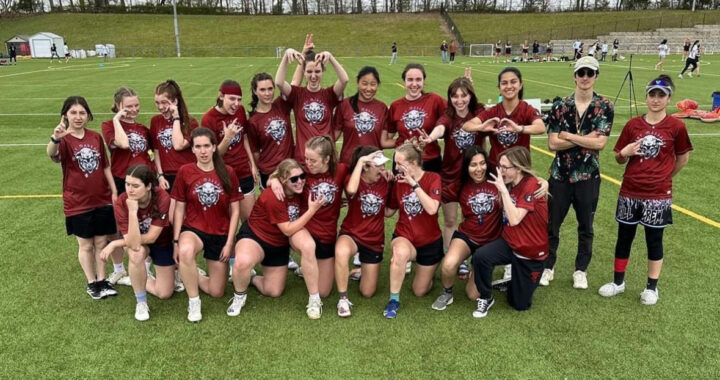Harmless question or ableist message: UC whiteboard stirs controversy
4 min read
Lauren Closs | The Blue & Gray Press
By ABIGAIL BUCHHOLZ
Staff Writer
A white board stationed outside the second floor elevators of the University Center at Mary Washington has struck controversy among students and faculty for a recent message it bore.
Every day the board is updated with a new question, always in the same format, “Would You Rather?” Students have the opportunity to answer each question by making tally marks with a dry erase marker. The Would You Rather board, which has become a staple in the lives of many, has presented questions ranging from students choosing between two different ice cream flavors, to choosing which electronic device they’d rather live without.
On Thursday, March 28, a new question appeared on the board, asking students if they would rather “never hear music again,” or “lose the ability to read”. This question struck several students and faculty as perpetuating an ableist message, or a message that is discriminatory in favor of able-bodied people.
The issue was originally brought to the attention of Dr. Chris Foss, an English professor, by sophomore Claudia Woods, who felt that the board’s message was inappropriate, even if it was not intended in that manner.
“Probably they are able bod[ied] people and they don’t realize what they’re doing with these kinds of messages. I realize that, but it also does not excuse the sort of content either,” said Woods.
In turn, Foss sent an email to several University staffers, including President Troy Paino and Melissa Jones, the associate dean for Student Involvement. In his email, Foss stressed the discriminatory nature of the question.
“The ableist message in the photo assumes a nondisabled audience and clearly represents persons who are Deaf/Hard of Hearing and/or blind/visually impaired as necessarily living a diminished life by virtue of their difference,” he wrote.
In response the the incident, Alec Mallmann, the assistant director of Student Activities & Engagement and University Center coordinator, said that, “Unfortunately, the question wasn’t vetted by the existing process and we are taking steps to correct that. There is no impact on how the board will be used in the future, but we are opening a conversation with various campus constituents to expand the vetting process.”
The general response to the question and the response that it has elicited varies, with some students feeling as if the issue is being taken too seriously.

Nina Serafin, freshman, said, “it’s only a somewhat silly question of the day… one of those questions you’d ask with your friends if you’re trying to make conversation.”
Elsa Baumgartner, freshman, felt that the question was misinterpreted. “It doesn’t necessarily mean never seeing. That’s a correlation, but its not synonymous [with being permanently blind],” she said.
Several students further questioned the intention of the board. Henry Wharton, freshman, felt that many passerby read too deeply into the phrasing of the question, and believed that the question instead referred to more specific circumstances that didn’t equate to disability. “I really don’t think they were intentionally trying to single out people with disabilities in any way shape or form,” he said.
Alexis Huber, freshman, sympathized with the creators of the board, “I can see that the intention behind it probably wasn’t to be ableist,” but, she also critiqued the process, “it’s just the thoughtlessness and not thinking through the question,” he said.
“I can see how when you’re making a board you’re not really thinking about how to include all different disabilities, but it’s something they need to do,” said Emma Snyder, sophomore English and psychology major.
Despite the temptation to dismiss questions like these as insignificant in the greater fight for inclusion and diversity on campus, some students feel as if the attention that the board is getting is beneficial.
Woods called for a more inclusive vetting process, “I think that there needs to be someone who has an understanding, who can have a better knowledge of ableist and really any sort of offensive content. There needs to be someone who has an understanding of what is and isn’t ok,” she said.
“We all have these unconscious biases and its very good that we are becoming more aware of them and starting to scrutinizing them more,” said Huber.
This sentiment was reflected further in Foss’s email, where he said, “The extent to which it did not seem offensive to whoever submitted it, any who selected/approved/allowed it, those who participated in the game of voting for the least disabling option, and all who went by it without registering its implications speaks volumes of the extent to which our campus still has a long way to go before it can claim to be a truly inclusive community.”
Mallmann addressed the response of the University Center, “As UMW takes steps toward inclusive excellence, the UC believes that expanding the vetting process to include varied voices can only enhance the experience of all of our community members and we welcome the opportunity to do so.”











